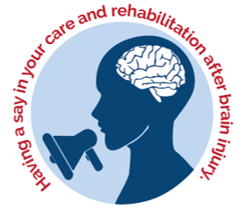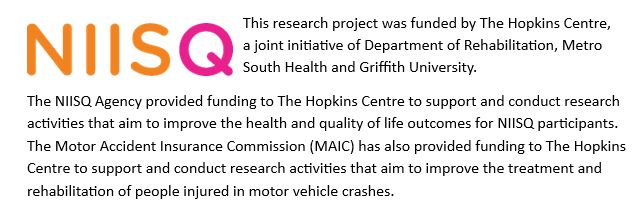Understanding what self-advocacy means after brain injury: Having a say in your care and rehabilitation
About the Project

A person who sustains an acquired brain injury (ABI) is likely to experience many transitions or changes in their care and rehabilitation, as they move between settings. This often involves different types and locations of care and requires the individual to make sense of these settings. Where transitions are not well supported, there is an increased risk the individual with ABI may feel their needs and wants are overlooked.
Aim and objective:
This project aims to understand how well people with a brain injury feel they can tell health professionals what they want and need as they move between different hospitals and services. It also aims to identify what support currently exists to help people to express their wants and needs. In Phase 1, people with ABI and family members will be interviewed at two time points to explore their perceptions of their ability to have a say in their care and rehabilitation. In Phase 2, focus groups will be conducted with clinicians, people with ABI and family members to find out what support currently exists for people to have a say in their care, and to design a new tool or way of supporting people to communicate their needs and wants. In Phase 3, the usefulness of this tool will be piloted with 10 individuals with ABI as they transition from hospital to community services.
Expected Outcome:
Phases 1 and 2 will contribute a shared understanding of what self-advocacy means for people with brain injury and the barriers for them expressing their needs and choices during the transition process. These will also highlight existing approaches to supporting self-advocacy across care transitions and rehabilitation. The findings will inform the co-design of a self-advocacy platform that is personalised to meet the needs and preferences of individuals with ABI as they transition from the hospital to home and across multiple services. Participants’ perceptions of the utility of the platform during the Phase 3 pilot trial will inform refinements to improve features of the platform ahead of a larger scale evaluation.
Expected Impact:
This project is expected to result in a new clinical approach and resources for promoting self-advocacy skill development early in the brain injury rehabilitation process. This will support individuals to have a greater say in their rehabilitation across the care continuum and will also improve communication between health care providers.
Progress and Results:
- Ethical clearance and site-specific approval granted. Data collection for Phase 1 commenced in August 2022.
- Meet and Mingle presentation on therapist strategies and consumer tools to support self-advocacy after ABI (May 2025)
- Phase 3, piloting of utility of MYSAY, a personalised self-advocacy platform during the hospital to home transition after ABI is underway (2025 and Ongoing)
- 16-week trial of the MYSAY tool and support sessions completed (2025)
- Presented project finding to date at international neuropsychological rehabilitation (NR-SIG) conference (July 2025)
- Clinician Toolbox and supports developed and released to MSH PAH clinicians (2024)
People/organisations involved:
Metro South Health: Dr Annerley Bates, Dr Ryan Bell, Janelle Griffin, Dr Ben Turner, Dr Kerrin Watter, Areti Kennedy, A/Prof Melissa Kendall, Courtney Carlson, Lana Godfrey, Dr Emily Gibson, Clare Morgan, Troy Hakala
Griffith University: Prof Tamara Ownsworth, Dr Jessie Mitchell, Prof Michele Foster, Belinda Adams.
Funding:
This project is funded by a Metro South Health Co-funded Collaboration Grant with Griffith University and NIISQ.

Inserted image is the project logo, created by Dr Jessie Mitchell.
View All Researchers

